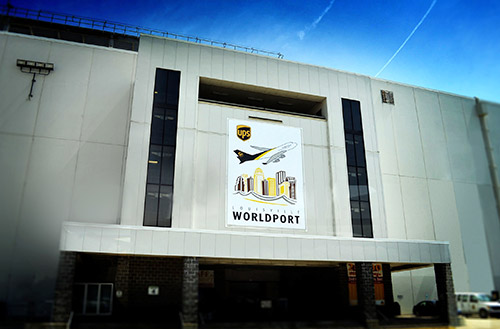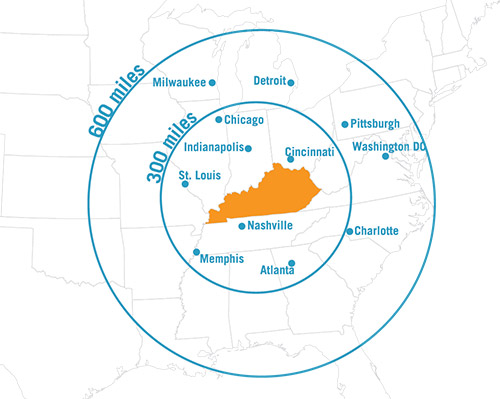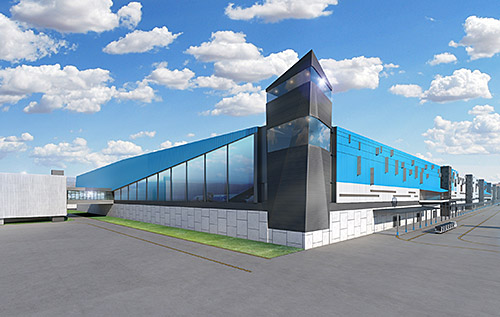
{{RELATEDLINKS}} In fact, manufacturing, service, and tech industry growth has remained strong in Kentucky across the past six months. Since Gov. Andy Beshear took office in early December, the state recorded 126 proposed new or expansion projects across that range of industries totaling more than $1.1 billion in planned investment. Those projects promise to create nearly 3,900 full-time jobs in the coming years, providing hope and opportunity for Kentuckians in every corner of the state.
In May, Kentucky saw eight new expansion and new-location projects announced, totaling $117.6 million in planned investment and promising to create nearly 760 new full-time jobs in the coming years. Those figures compare well to the pre-pandemic months of January – with $50 million and 342 announced jobs – and February — with $337 million in planned investment and 691 new jobs.
Not only is Kentucky prepared to succeed across the coming years, but also to leap ahead in onshoring, securing foreign direct investment (FDI) and diving into emerging industries such as agritech. State leaders are emphasizing development of the Commonwealth’s agritech industry — a marriage of Kentucky’s advanced manufacturing industry and long-standing status as an agricultural powerhouse.

As one of its calling cards, Kentucky’s nationally outsized manufacturing industry combines with its robust supply chain and highly skilled workforce to make the state a prime destination for onshoring projects. With about 4,500 facilities operating statewide, Kentucky ranks among the leading manufacturing states, having more than 13 percent of its workforce in manufacturing versus 8.5 percent nationally, according to the National Association of Manufacturers.
This dynamic manufacturing landscape is now pivotal in helping Kentucky withstand the pandemic, and spur recovery. Producers across the state stepped up to help solve one of the most significant initial challenges of battling the pandemic — the critical shortage of personal protective equipment (PPE) needed to prevent the disease’s spread.
Looking past the pandemic, Kentucky’s manufacturing prowess has potential to help the state attract FDI and onshoring projects. One example is PRCO America Inc., which is establishing its first U.S. manufacturing plant in Hickory, Ky., to produce specialty refractory brick for the steel industry. This $5.5 million project aims to create 32 full-time, state-resident jobs in West Kentucky’s Graves County. The company, a subsidiary of Chinese-owned Puyang Refractories Group Co., in April received preliminary approval from the Kentucky Economic Development Finance Authority (KEDFA) for up to $550,000 in performance-based tax incentives to locate the project in the Commonwealth.

Kentucky’s location advantages also support another mainstay industry, one primed for post-pandemic growth. As consumers continue trending toward online ordering and home delivery — both in terms of usage frequency and for a broader range of goods — ample opportunity exists for Kentucky and its more than 540 logistics and distribution facilities. That industry currently employs 75,000 people. Growing reliance on overnight shipping and an increased role for the industry overall could also help Kentucky compete for manufacturers looking to onshore in the wake of the pandemic.
Thanks to UPS, DHL, and Amazon Air shipping hubs, Kentucky is currently the nation’s No. 2 air cargo state, and it’s on a fast track to become No. 1. When also considering the state’s hundreds of small and mid-size logistics companies that, by nature, can swiftly adapt to market shifts, the industry appears well-positioned for future success in Kentucky.
Emerging agritech industry yields huge growth potential in Kentucky.
While these long-thriving industries are key in Kentucky’s future economic prosperity, so too are the industries of the future. One notable example is the emerging agritech industry, one that plays to Kentucky’s strength in advanced manufacturing and its deep-rooted history as an agricultural powerhouse.
Agritech, which leverages technology in agricultural practices in ways that improve yield, efficiency, and profitably, is forging ahead globally with a sense of urgency. The United Nations estimates the world needs to increase its food supply by 70 percent to feed a population that will include an additional 2.3 billion people by 2050; and tech products, services, and applications developed and exported from Kentucky can contribute to solving this problem.

Additionally, Morehead, Kentucky, is slated to become the home of the nation’s largest greenhouse. Startup agritech company AppHarvest is constructing the $97 million high-tech greenhouse, which will grow produce year-round and span 2.76 million square feet. Company leaders plan to employ 285 people at the facility and ship up to 45 million pounds of tomatoes annually.
These current developments yield even more promise when considering Kentucky’s potential to develop a robust workforce pipeline to support a variety of agritech jobs statewide. Those efforts will be supported through Kentucky’s colleges and universities, the 16 schools across 70 campuses in the Kentucky Community & Technical College System, and bespoke programs and multi-partner collaborations such as Registered Apprenticeships, the state’s Work Ready Skills Initiative, and the KY Federation for Advanced Manufacturing Education (KY FAME).
As a whole, Kentucky’s continued emphasis on growing its major industries, as well as its plans to gain a foothold in the emerging industries, poise the Bluegrass State to not only recover from the pandemic’s detrimental effects, but also push the economy to new heights.
